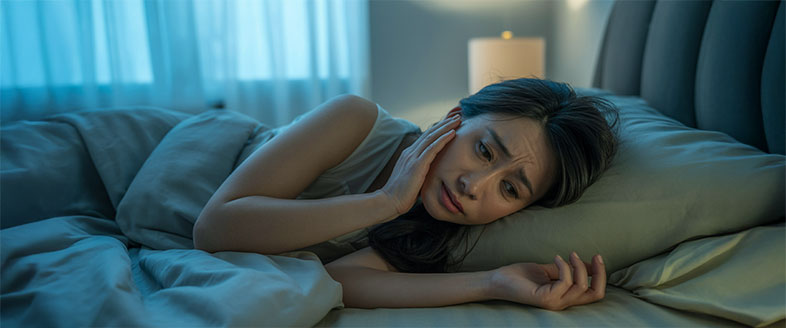Have you ever woken up with a sore jaw or a dull headache, wondering what happened during your sleep? If so, you may be experiencing teeth grinding.
While the occasional clenching of teeth may seem harmless, persistent grinding can lead to lasting effects on your dental health and overall well-being. The good news is that bruxism is both manageable and treatable with the right approach.
In this guide, we’ll explore its signs and symptoms, common causes, and the steps you can take to relieve jaw pain.
What is Teeth Grinding (Bruxism)?
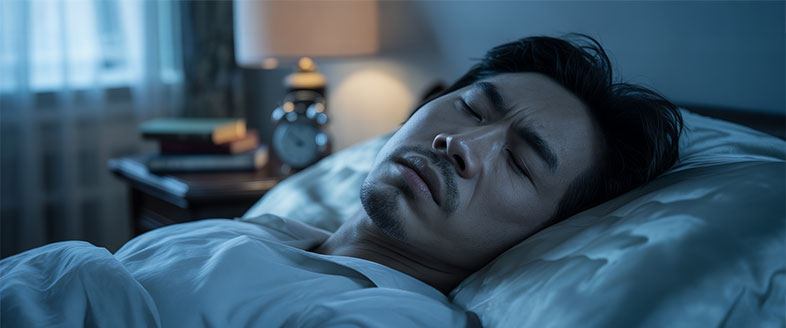
Teeth grinding, also known as bruxism, occurs when you clench or grind your teeth subconsciously, most often during sleep. This condition can also happen while you’re awake, especially in moments of stress or deep concentration.
According to Johns Hopkins Medicine, teeth can exert a surprising amount of force—up to 113 kg (250 pounds)—when clenched at night. Over time, this pressure can lead to worn-down or fractured teeth, muscle fatigue, and even Temporomandibular Joint (TMJ) Disorder.
Bruxism Signs and Symptoms
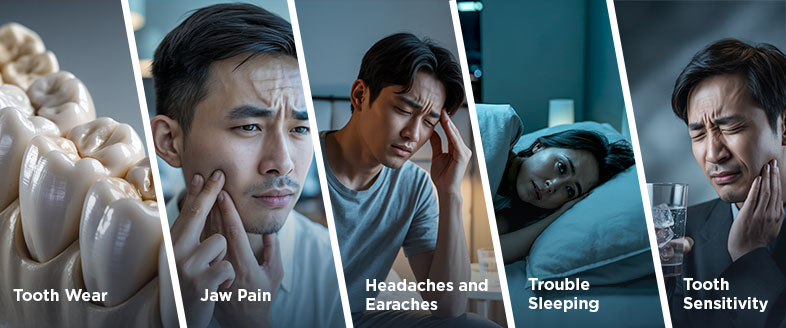
Because bruxism often occurs subconsciously, it's important to recognise the warning signs. Some symptoms to look out for include:
The symptoms of bruxism can resemble those of other health conditions. Knowing how to identify the telltale signs is your first step to timely and effective treatment.
Causes of Teeth Grinding
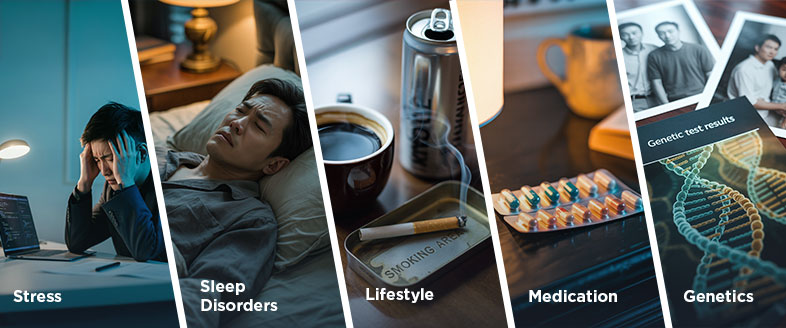
Bruxism doesn’t happen for no reason—it’s often linked to one or more underlying factors, such as:
How Do I Stop Grinding My Teeth?
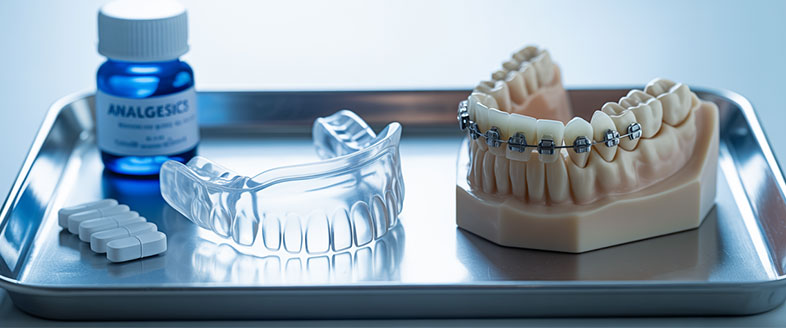
With the right guidance, bruxism can be effectively managed. A combination of professional dental treatment and lifestyle changes offers the best results.
Personalised Dental Care at dePacific
At dePacific, we offer tailored solutions to help alleviate the symptoms of bruxism and prevent further damage:
Custom-fitted nightguard / Custom mouth guard
A nightguard creates a protective barrier between your upper and lower teeth. Our dentists will advise on which type of nightguard is suitable for you. We will also take precise impressions to ensure a comfortable, personalised fit before issuing the nightguard on the following visit.
Orthodontic treatment
Misaligned teeth may contribute to teeth grinding. Options like metal braces or Invisalign can help correct bite issues and improve long-term dental alignment.
Short-term medication
For short-term relief, muscle relaxants may be recommended in select cases to reduce jaw tension during sleep. These are used in conjunction with other treatments for optimal relief.
Adjustments to Lifestyle and Sleep Environment
In addition to professional treatments, making small adjustments to your daily routine and lifestyle can also support your dental care plan and promote better rest:
Stress reduction techniques
Mindfulness practices, yoga, or light evening walks can help reduce physical and emotional tension before bed.
Consistent sleep schedule
Going to bed and waking at the same time each day helps stabilise your sleep cycle and reduce nighttime grinding.
Limit screen time
Reduce exposure to blue light from your phone and laptop before bedtime to encourage melatonin production and improve sleep quality.
Avoid stimulants
Caffeine and alcohol, especially in the evening, can disrupt your sleep and heighten muscle activity. Consider calming herbal teas as an alternative.
Jaw relaxation exercises
Gentle stretching or light massage to the jaw, neck, and temple areas can relieve muscle tension.
Avoid excessive chewing
Habitual chewing of gum or hard foods can strain the jaw and worsen bruxism. Try sipping water or using sugar-free lozenges instead.
Take the First Step Toward Better Sleep and a Healthier Smile

Teeth grinding doesn’t have to interfere with your life or your sleep. At dePacific Dental, we’re here to support you with caring, gentle care tailored to help with your sleep bruxism / awake bruxism.
From custom nightguards to orthodontic treatments and comprehensive care plans, our dedicated team is ready to help you find long-term relief. With multiple dental clinics in Singapore and flexible scheduling options, it’s never been easier to take the first step toward a healthier, more comfortable smile.
To learn more, speak with our friendly team or schedule an appointment at your nearest dePacific clinic.

